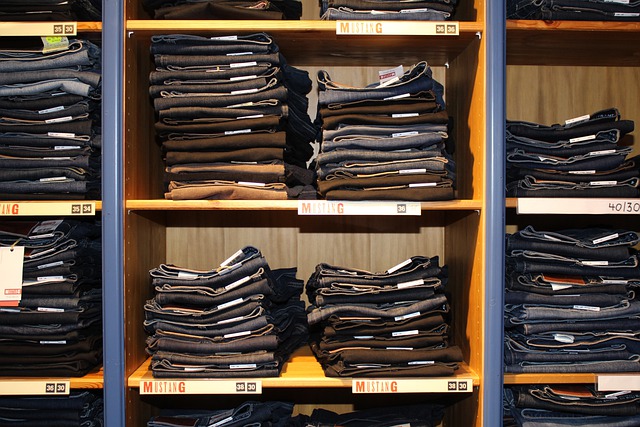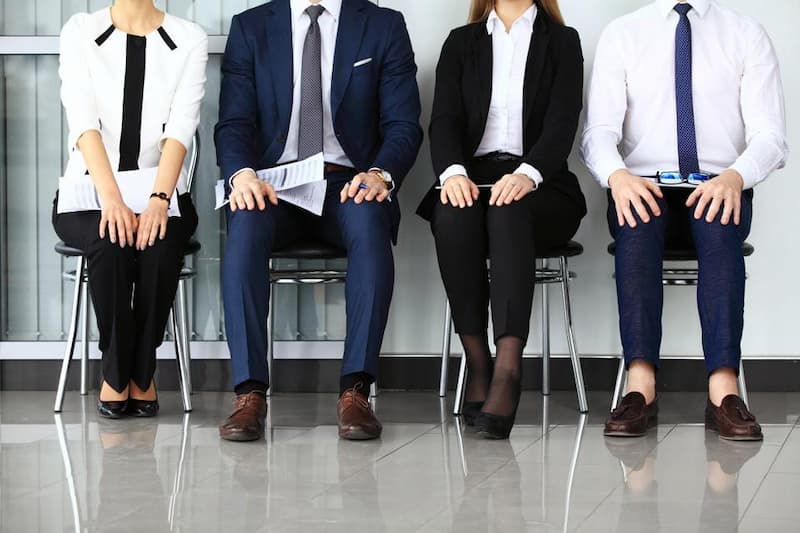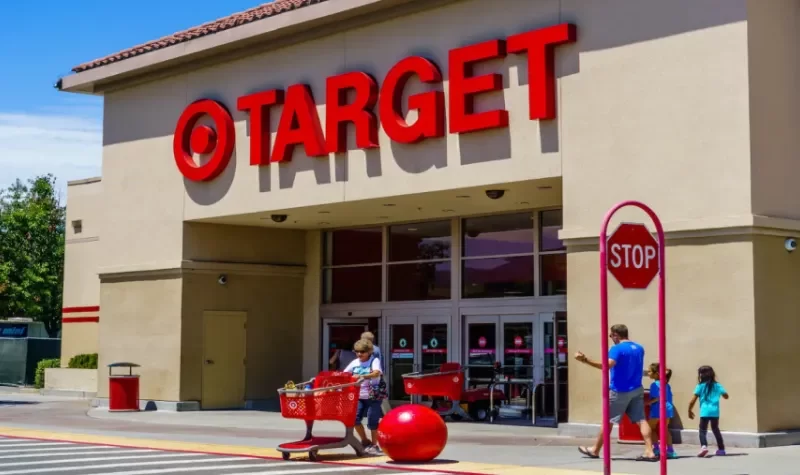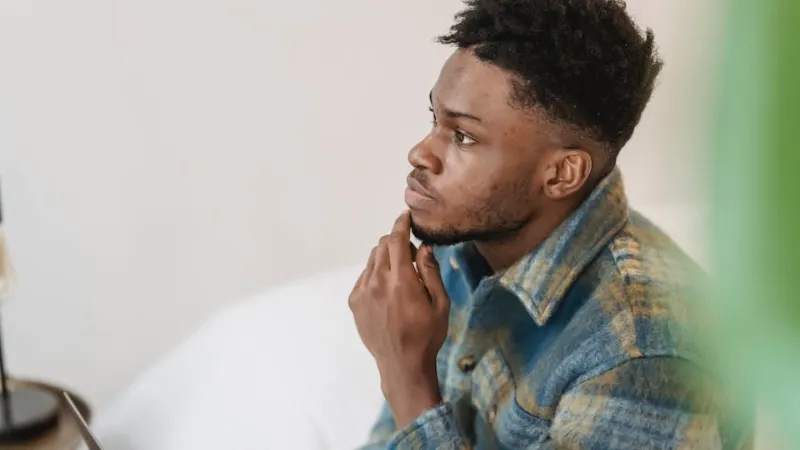The hiring manager just called to request an onsite interview with you, and you just got the message. Your mind immediately turns to the hiring manager’s questions, your prepared responses to any inquiries they may have, and your research into the business. The next step is to think about one of the interview’s most crucial components: your attire.
First, can you wear jeans to an interview?
Typically, it depends on the job for which you are being interviewed.
The most important thing to remember is that it is a NO. Bcz its not formals.
The first thing interviewers notice about you is how you carry yourself. (in particular, your appearance). Some people will only evaluate you based on how you present yourself.
Please continue reading as I explain the specific information in the post.
Table of Contents
When Is It Acceptable To Wear Jeans To An Interview?
Compared to men, women can more easily get away with wearing jeans to a job interview. For women, there are jeans that are more polished and formal. A pair of jeans in a very dark wash or in all-black is a good bet. Make sure they have a sharp fit if you decide to wear this style of denim. If they feel it’s appropriate, men can also dress down by donning a blazer with a pair of dark or black jeans.
If you plan to wear jeans to your interview, always choose a dressier top. Also acceptable combinations include a blazer and dressy shoes.
Even though you’re still wearing jeans, wearing some kind of jacket gives you a more professional look. One piece of advice for anyone experiencing impostor syndrome is to dress the part. It can also help you feel more confident during the interview.
Check to see if there is a dress code at the office before deciding on your outfit. The company website occasionally makes reference to culture. If they are laid back and casual, your interview outfit could include jeans.
If you are conducting an interview in the same field, consider what your previous employers have said. Make sure the outfit you pick makes you feel good about the way you look. Candidates who are confident present themselves more effectively.
When Are Jeans Not Permitted At A Job Interview?
When interviewing, recent college graduates should abstain from wearing jeans. Put your best foot forward if you don’t have a lot of experience.
Make a good first impression on the interviewer by dressing professionally. Never overdress for an occasion.
The best choice for an interview at a formal workplace is to dress in a suit. Avoid appearing too careless.
Play it safe and wear a suit, a button-down shirt, and a tie to make sure you look professional. Suits and business dresses are options for women.
You should wear more formal attire, even if the company’s website says they have a business casual environment. As an alternative, consider donning khaki or slacks. Leave the tie and jacket at home if the workplace is more laid back.
On the other hand, never dress casually for an interview. Even if you aren’t wearing a suit, it’s crucial that you look professional.
Can You Find Out What The Interview Dress Code Is?
When you are in an interview, you always want to leave a positive impression. Asking if there is a dress code for your interview might not be the best move. For safety’s sake, we advise dressing a bit formally.
A professional outfit is always a good choice, regardless of whether the company’s website describes them as casual or business casual. The position and your future career should be the focus of all pre-interview inquiries. Save asking about the dress code for when you get the job offer!

If The Interview Dress Code Is Business Casual, May I Wear Jeans?
While several organizations opt for a business casual dress code for their employees, it’s important not to confuse business casual with actual casual wear. It’s also crucial to keep in mind that you should conduct yourself professionally throughout the interview given that you are not yet an employee and your end goal is to do so.
Regardless of the type of position you’re interviewing for, even if an organization has a more relaxed dress code that permits wearing jeans to work, it does not entail that you should do the same for your interview. You might be asking:
- Jeans are cool because I’m applying for a part-time job, right?
- Can I wear jeans to an interview for a student or entry-level position?
- I would wear jeans to work because I have an hourly job, so why not for the interview?
- Jeans should be totally acceptable to wear since I’m interviewing with a tech company, right?
The answer? It’s best to err on the side of caution. Even if you’re a student, applying for a part-time or hourly job, or having an interview with a tech company, wearing jeans to an interview is generally never appropriate. The answer isn’t always clear-cut.
It’s true that you don’t want to show up in a suit and tie for your interview if everyone else in the office is wearing business casual or jeans, but you also don’t want to give off the impression that you’re too laid back or don’t care enough by underdressing. See more about How Long Do Interviews Last?
Whatever Suits The Role Should Be Worn
I can speak from experience as an HR professional who has taken part in countless interviews when I say that what you wear to an interview matters. However, wearing jeans is often acceptable.
When I say “what you wear,” I’m speaking of the attire. It is not acceptable to wear:
- Ripped or torn jeans
- Unclean clothing
- Ratty old t-shirts
The candidate I interviewed in the late 2000s had a huge pot leaf on their t-shirt when they arrived for the interview. This was not acceptable. It’s all about using your judgment; dress for the part. No longer does being professional entail donning a suit.
I interviewed candidates for positions ranging from laborers to executives for years in a manufacturing setting. I think jeans are perfectly acceptable at nearly every level.
- For manufacturing shop positions, jeans are absolutely acceptable.
- I think jeans are acceptable in an office position if they are nice jeans (no holes, no design) and are worn with a button-down shirt.
- I would advise people that wearing suits is not required and that jeans are appropriate when interviewing for a leadership position, including supervisors through the director level.
I frequently interviewed candidates who were wearing nice jeans, a nice button-down shirt, and a jacket. These candidates not only looked professional, but they also looked the part.
In my opinion, the executive level is the only time jeans are not acceptable interview attire in a manufacturing environment. I think the position warrants a step up in clothing.
Is it really important to me if you work fabulously if you do it in jeans? Absolutely not!
We need to get past the outdated belief that wearing a suit is the only way to be professional. In the end, our attire does not make us any more or less effective at our job.
The interview process is comparable. I want the best technical and cultural fit for my open position. As long as the candidate dresses appropriately for the role they are interviewing, I’ll look past their appearance and concentrate on the applicant and what they can bring to my open position.
I think it shows a level of intellect if a candidate can assess the role they are interviewing and dress accordingly.
There are many kinds of interviews, and many companies trying a new form of interview — open interview.
With What You’re Wearing, Can You Envision Yourself Fitting In?
Whether you are in the job market because you were part of the great resignation or ready for new challenges, you may be preparing for interviews and asking yourself, “What should I wear?”
The answer is, as with most things in life and business, it depends. I’ll give you the following advice to help you make this choice:
Understand The Interview Format
If your interview is remote, you should plan to dress professionally from the waist up. Your lower half won’t be captured on camera, so you can wear whatever you like up to your waist.
If so, you might wear a suit jacket or a collared shirt on top and jeans or even shorts underneath. (Did you know that a lot of television news anchors dress like this?)
It becomes more difficult if you have a face-to-face interview. Proper interview attire is determined based on the job function, the industry, and the employer’s organizational culture.
Understand The Job Function
Depending on the position you are interviewing for, different clothing is appropriate.
- Plan to attend the interview in a suit if you are applying for an executive or management position.
- For an administrative role, think business casual; you may pair a dress shirt with khaki pants or a skirt.
- You might choose to wear a polo shirt with clean, undyed jeans (without any rips or tears) if you’re applying for a blue-collar job in manufacturing, construction, or maintenance.
Here are some things to avoid, regardless of the role:
- Logo t-shirts
- Bare midriffs
- Flipflops
Dress as you would on the type of workday when you will be meeting with your most important stakeholders, whether that be your client or your boss, to ensure that you ace the interview.
Understand The Industry
The appropriate attire for interviews and the workplace varies not only by job function but also by industry.
If you have a job in the arts (like,, graphic design, entertainment, fashion, music), you will be able to take more fashion risks that let you stand out, such as wearing brighter colors and trendier styles.
In a conservative field, you may be expected to wear more neutral colors and classic styles that blend in.
Understand The Employer’s Organizational Culture
Additionally, there will be variety within industries. Every employer has a distinctive culture.
Can you go to the employer’s office to see how the staff is dressed? If not, visit their website. You’ll learn something from that. Who is pictured in their photos, and how are they dressed?
- Formal or casual?
- conservative or trendy?
- Are there any tattoos or body piercings that are visible?
- Can you envision yourself blending in?
Take Note Of How Your Interviewers Are Dressed
Be sure to observe the attire of the interviewers. If you are invited back for a second interview, you may choose to maintain your first interview approach since it was successful.) or dress the way they did.
You may choose something less formal if, for example, you went to the first interview wearing a suit and they were dressed in business casual.
At the interview, your goal is to be seen as someone who is qualified to do the job and who would fit in. Instead of focusing on your appearance, you want the interviewer to pay attention to your responses. Once you land the job, you might be able to let your hair down and be more casual with your attire. See more about Assistant Manager Interview Questions
If You Feel Most Comfortable In Jeans, Wear Them
Everything inside of me screamed when I first considered this: “No, of course not—you can’t wear jeans to a job interview!”
However, as I began to reflect more on this, I realized that my immediate and rather adamant response was perhaps clouded by my own professional background.
My career to date has always been in more customer-facing roles, meaning, every day, I would dress professionally for work.
For me, that was always the expectation. And, if your suit was creased, or your shirt wasn’t ironed, or it was untucked, it was viewed that you were projecting the wrong image—that you weren’t professional or equipped to do the job correctly.
That is the way society as a whole, not just some of my previous employers and managers, had conditioned me to think.
The pandemic has certainly shifted some of those expectations. Since 2020, we’ve had to adapt to new ways of working, and, in my HR role, I have hired many new colleagues remotely without meeting them in person.
Jeans were on their person? I have no idea! And it made no difference to my hiring decision whether they were, in fact, wearing jeans or not.
What I look for in a candidate is based on their attitude and behavior and, depending on the role they are interviewing for, their experience and skills. Nevertheless, knowledge can always be acquired through opportunities, and experience can be acquired over time.
In order to sum up, yes, please wear jeans if that is how you feel most comfortable.
In my view, the fact that you may or may not choose to wear jeans at a job interview bears no impact on your ability to do the job that you are interviewing for.
Remember to bring your true authentic self to the interview:
- As it is who you are
- What your values are
- How these may align with an employer’s values
I will always support a work environment where my team members can be themselves and give their best effort.
The Bottom Line
First impressions can make or break a job interview, as has been said countless times. With so many different industries, corporate cultures, dress codes, etc., this is becoming even more crucial. They may have even advised you that it is preferable to be overdressed than underdressed, but this cliche may no longer hold true. Some managers might not want to consider you for the position if you are too overdressed or underdressed because business casual is becoming more and more popular.
Wearing khakis and a button-down or polo for men and slacks and a nice top or a casual dress for women is advised if you are interviewing for a managerial position or a business-facing position, such as a project manager or business analyst. It is appropriate to wear jeans and a nice top or a casual dress to the job interview if it is for a technical position and you won’t be speaking to any business people.
I want to thank you for reading, but that’s not the end of it.



